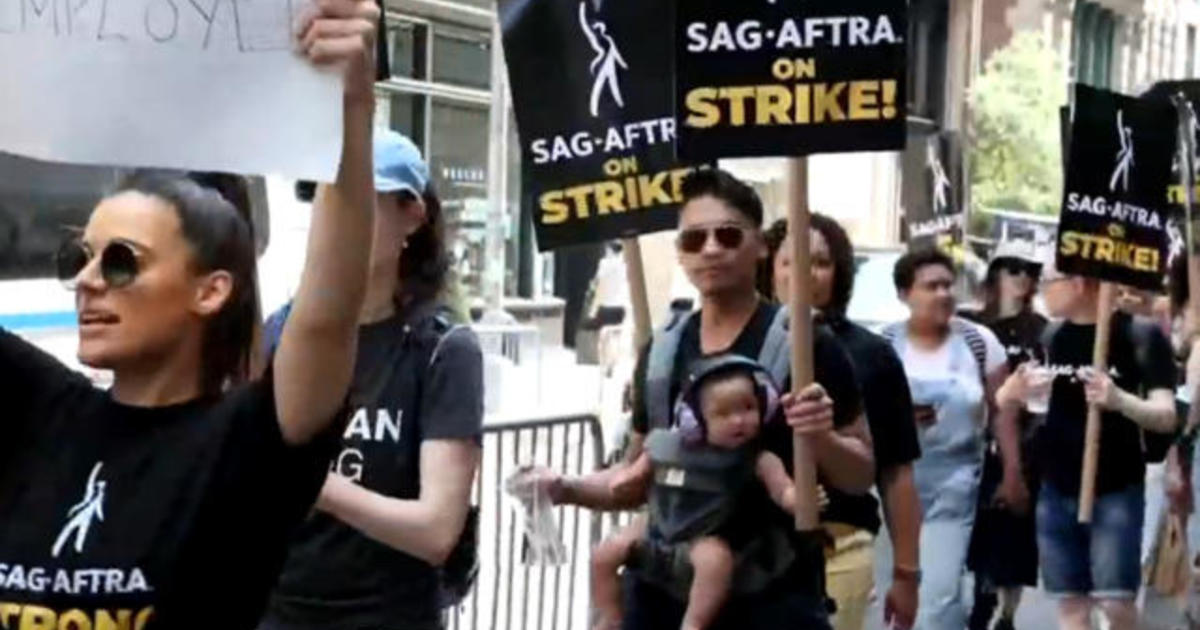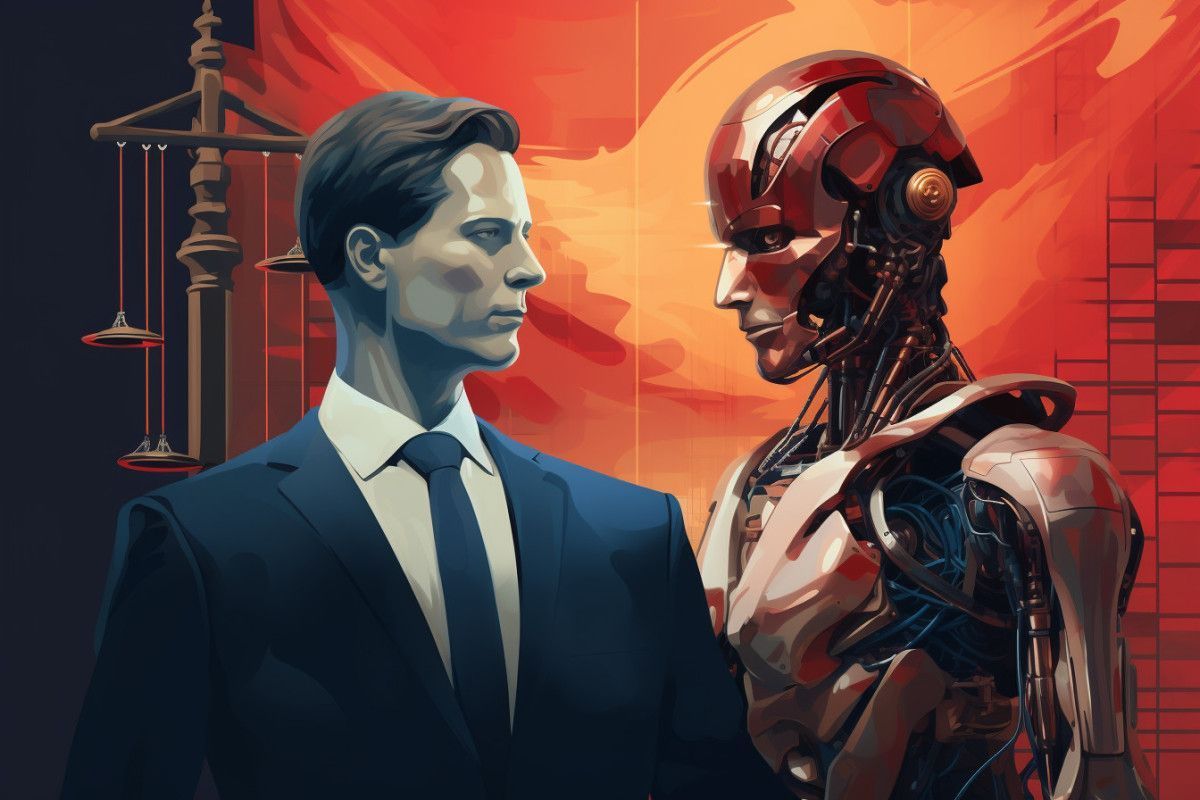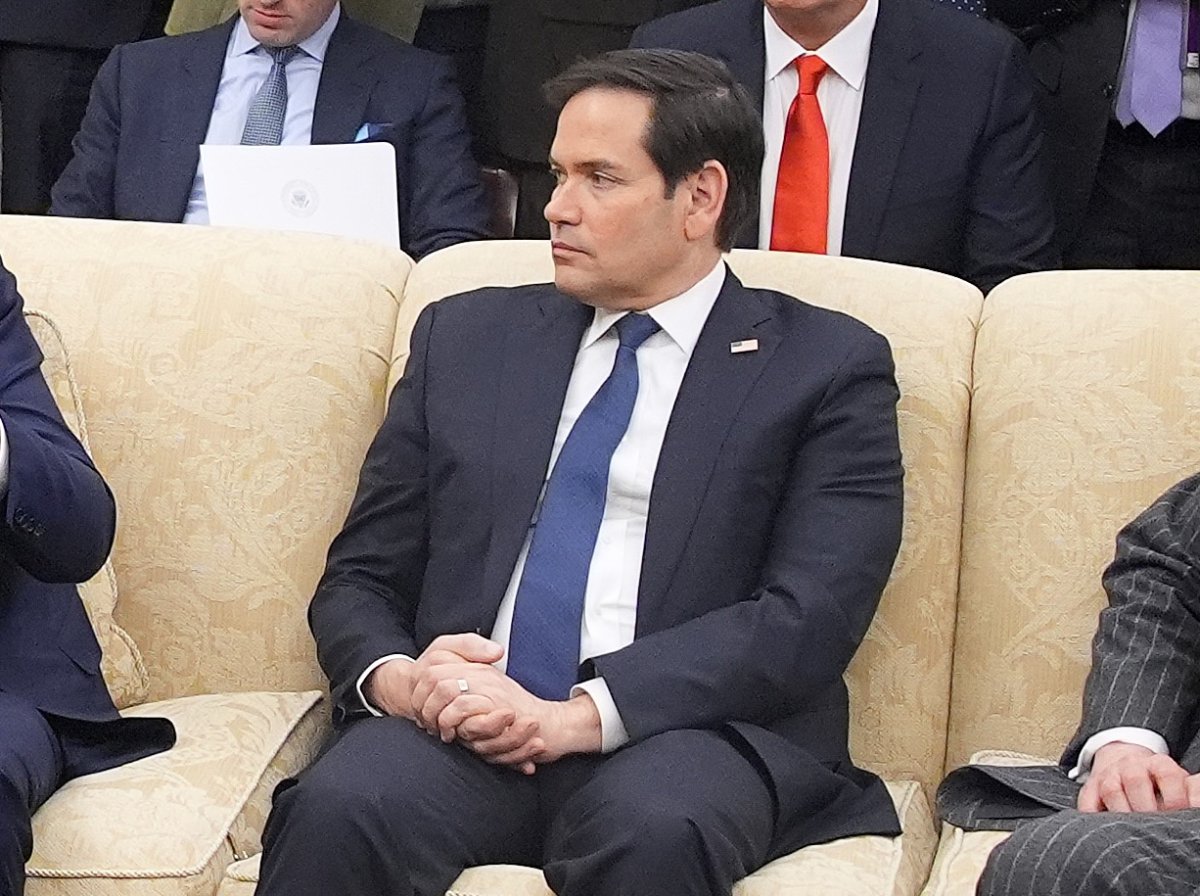Actors Join Writers' Strike: A Complete Hollywood Production Shutdown

Table of Contents
The Combined Power of the WGA and SAG-AFTRA Strikes
The simultaneous strikes by the WGA and SAG-AFTRA represent a powerful show of unity against what both unions see as unfair labor practices and exploitative business models.
Understanding the WGA Strike
The Writers Guild of America's strike, which began in May 2023, stemmed from several key demands. These include:
- Fair wages: Writers argue that their compensation hasn't kept pace with the industry's growth, particularly in the streaming era. Residuals, once a significant source of income, have drastically diminished with the rise of streaming platforms.
- Residuals in the streaming era: The traditional model of paying residuals for reruns and syndication has been significantly undermined by streaming, leaving writers with minimal compensation for their work's continued use.
- Protections against AI: The WGA is seeking guarantees to protect writers' work from being replaced or exploited by artificial intelligence.
The WGA strike initially impacted numerous television shows, leading to delays and cancellations. Examples include the postponement of late-night talk shows and the halting of production on several major network series.
SAG-AFTRA Joins the Fight
The Screen Actors Guild – American Federation of Television and Radio Artists (SAG-AFTRA) joined the strike in July 2023, amplifying the pressure on studios. Their grievances mirror those of the writers, but with a specific focus on:
- Fair wages and residuals: Actors, like writers, have seen their compensation decline due to streaming's impact on traditional revenue streams.
- AI concerns: SAG-AFTRA is particularly concerned about the use of AI to replicate actors' performances and potentially replace them altogether. This includes the use of AI to create deepfakes and other digital representations.
The actors' strike adds considerable weight to the existing pressure on studios. High-profile actors, including prominent figures from film and television, have actively participated in picket lines and public demonstrations, highlighting the widespread support for the strike.
The Unprecedented Scope of the Joint Strike
The combined impact of the WGA and SAG-AFTRA strikes is unprecedented. Major productions across film and television have ground to a complete halt.
- Production shutdowns: Thousands of productions are affected, leading to significant delays and potential cancellations. The exact number is difficult to pinpoint, but it’s clear that the impact is widespread and deeply felt across the entire industry.
- Economic consequences: The financial consequences ripple through various segments of the industry, from studio budgets to the livelihoods of countless support staff. This includes crew members, caterers, location managers, and many others whose jobs depend on active productions.
- Ripple effects: The strike's impact extends beyond Hollywood itself. Related industries, including transportation, hospitality, and post-production, are also experiencing economic fallout.
Key Demands and Negotiation Challenges
The core issue lies in the gap between the unions’ demands and the studios' willingness to compromise.
Studios’ Resistance and Counter-Proposals
Studios have cited financial constraints and the rapidly changing media landscape as reasons for resisting the unions' demands. Their counter-proposals have often been viewed as insufficient by the unions.
- Financial arguments: Studios claim that the current economic climate, coupled with the changing revenue models of streaming, makes it difficult to meet the unions' demands for increased compensation and improved benefits.
- Lack of compromise: Both sides have been accused of a lack of willingness to compromise, leading to a stalemate in negotiations. This deadlock underscores the significant challenges in bridging the gap between the demands and the studios' perceived capabilities.
- Concessions: While minor concessions might have been made on certain aspects, the core disagreements regarding compensation, residuals, and AI usage remain unresolved.
The Role of Streaming Services
Streaming services have fundamentally altered the compensation models for actors and writers.
- Streaming's impact on compensation: The shift from traditional broadcast and cable television to streaming has resulted in reduced residuals and a change in the way content is consumed and valued.
- Challenges in negotiating fair compensation: The unpredictable nature of streaming viewership makes it difficult to establish a fair compensation model that reflects the actual value of the content created.
- Future of streaming business models: The strike could lead to a reevaluation of streaming business models, potentially paving the way for more equitable compensation structures in the future.
Potential Long-Term Impacts of the Hollywood Strike
The prolonged strike holds significant implications for the future of the entertainment industry.
Impact on Film and Television Production
The ongoing strike is causing considerable delays and potential cancellations of major projects.
- Project delays: Numerous films and television series are facing significant production delays, impacting release schedules and potentially altering production plans.
- Impact on film and TV festivals: The strike’s impact on release schedules will undoubtedly affect the lineup of major film and TV festivals worldwide.
- Project abandonment: In some cases, projects may be abandoned altogether, particularly those with tight deadlines or limited budgets.
Economic Fallout and Beyond
The economic impact of the strike extends far beyond Hollywood studios.
- Financial losses: The industry is facing substantial financial losses across various sectors, including production, post-production, and ancillary businesses.
- Impact on tourism and related industries: The shutdown of film and television productions will undoubtedly impact related industries, including tourism and local businesses that rely on film crews and productions.
- Effect on the next award season: The strike’s duration will significantly influence the eligibility of films and television shows for major award seasons, potentially altering the landscape of the awards ceremonies.
Conclusion
The simultaneous actors' strike and writers' strike is a watershed moment in Hollywood. The complete shutdown underlines deep-seated issues regarding fair compensation, the evolving media landscape, and the unsettling impact of AI. The outcome will profoundly shape the industry's future. Staying informed about developments in the actors' strike and writers' strike is crucial. Keep checking back for updates on this significant labor dispute impacting the future of Hollywood and the entertainment we consume.

Featured Posts
-
 Chaos And Confusion Before Shooting Lapd Releases Videos Of Weezer Bassists Wife Incident
Apr 28, 2025
Chaos And Confusion Before Shooting Lapd Releases Videos Of Weezer Bassists Wife Incident
Apr 28, 2025 -
 Abu Dhabi 2024 1 1 Billion In Key Projects 26 2 Billion Real Estate Boom And More
Apr 28, 2025
Abu Dhabi 2024 1 1 Billion In Key Projects 26 2 Billion Real Estate Boom And More
Apr 28, 2025 -
 Cassidy Hutchinson Memoir Expected Release Date And Jan 6 Details
Apr 28, 2025
Cassidy Hutchinson Memoir Expected Release Date And Jan 6 Details
Apr 28, 2025 -
 Ftc Launches Probe Into Open Ai A Deep Dive Into The Investigation
Apr 28, 2025
Ftc Launches Probe Into Open Ai A Deep Dive Into The Investigation
Apr 28, 2025 -
 Trump Zelensky Meeting Before Popes Funeral A Reconciliation
Apr 28, 2025
Trump Zelensky Meeting Before Popes Funeral A Reconciliation
Apr 28, 2025
